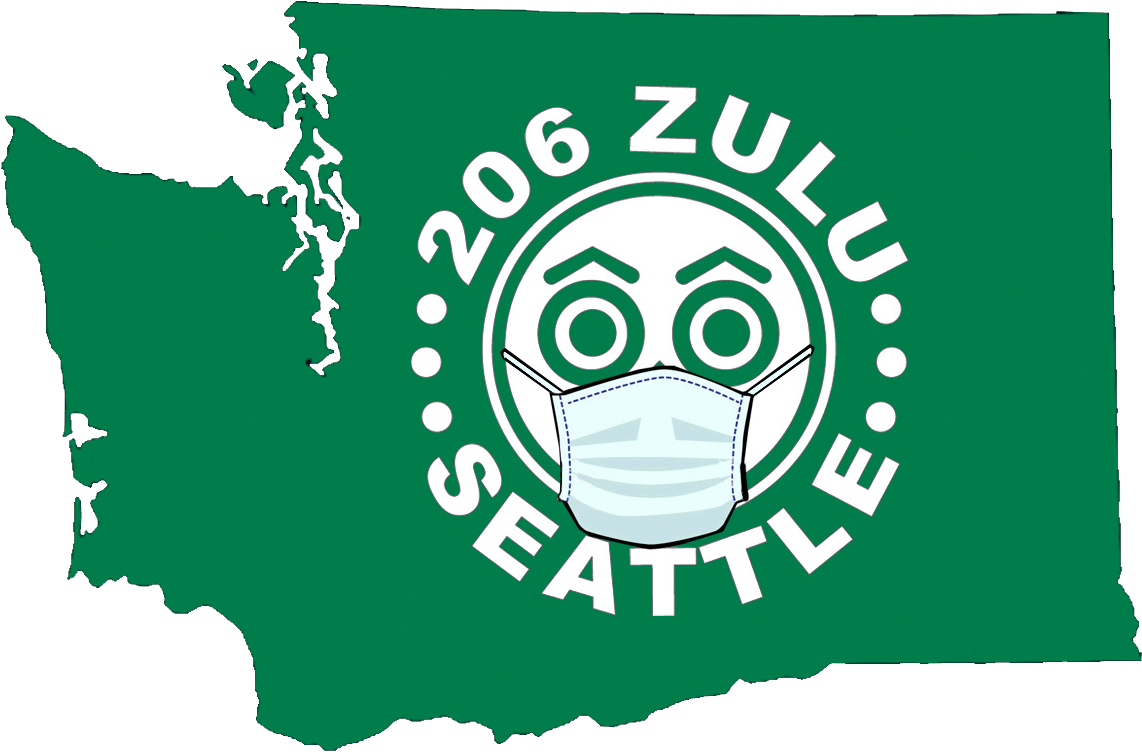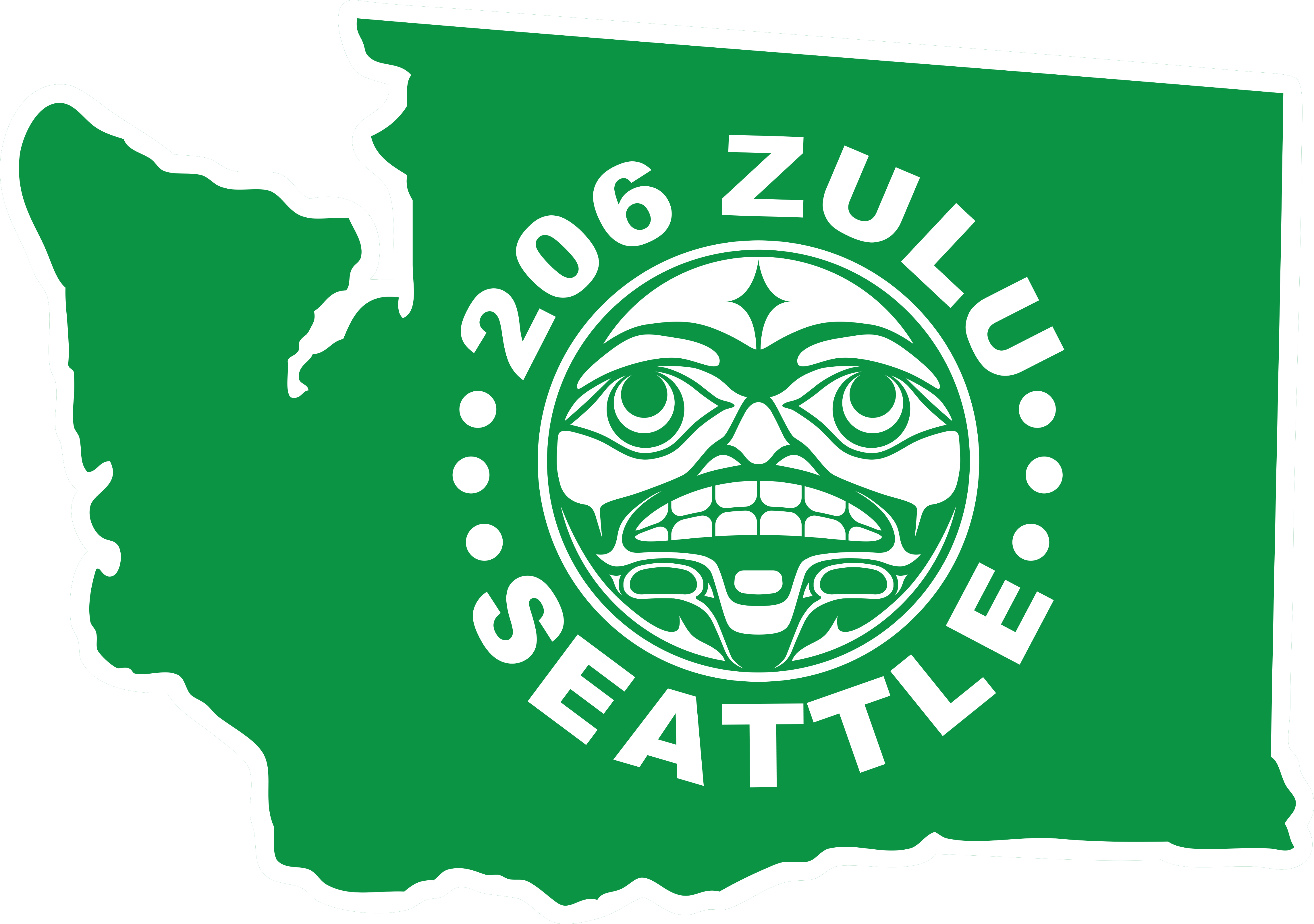
Some 206 Zulu readers will be familiar with our Always Remembered series, a tradition we carry each year where we take time to hold space for people within Hip Hop and its peripheral communities who passed on over the course of the preceding year. In the past, this remembrance has taken the form of an annual video episode of our Meeting of the Minds podcast. For 2024, we’ll be sharing these memories in a different way.
Over the course of this year, we’ll be sharing a written commemoration of some of these influential members of our greater community, one at a time. We know that the act of remembrance is a tremendous power we have to keep our predecessors and ancestors alive through our collective voice. In that grain, keep posted for our ongoing series of brief stories looking into the lives of some of the fascinating people that transcended their physical frames in the course of 2023. And if any of these individuals have impacted you in any way, remember, your retelling of these stories will keep them alive in perpetuity. This is Always Remembered…

Dave Jolicoeur
Celebrating the memory of Trugoy the Dove, aka Plug Two, aka Dave from De La Soul is a two part exercise. On one hand, there’s much to remember about his individual contributions to Hip Hop culture and the group he helped to raise to legendary status. On the other hand, it’s an opportunity to celebrate De La Soul’s indelible mark on Hip Hop culture while we give thanks that the still living members and their collaborators will continue making new music and history.
David Jolicoeur was born on Sept. 21, 1968 in Brooklyn, New York, but his family moving to Long Island while he was still a young child proved to be one impactful transition in a chain of events that would go on to shape the story of Hip Hop. Meeting Kelvin Mercer and Vincent Mason at Amityville Memorial High School would be another of those moments. Finding a shared passion in rap music would lead the three friends to form the group De La Soul while still in school. Kelvin Mercer would become Posdnuos and Vincent Mason would become Maseo. Dave Jolicoeur would exhibit the versatility that he approached the rest of his life with as his aka’s shifted between Plug Two, Trugoy (Yogurt backwards), Trugoy the Dove, and finally just Dave.

In a group of unique individuals that would go on to join forces with some of Hip Hop’s most legendary trailblazers, Dave had a unique shine. The great Hip Hop journalist Greg Tate was once asked in an interview, who he thought is the most overlooked rapper in greatest of all time conversations. His answer was, “I would have to say that would be De La Soul’s Trugoy the Dove, who was way unappreciated for his creativity with language, his vulnerability and his storytelling.”
When Dave died on February 12, 2023 at the age of 54, no public cause of death was given but his intimate relationship with his fans made the cause seem apparent. Harkening back to the vulnerability that Greg Tate praised, Dave had already openly shared personal details about his struggle with congestive heart failure, which he was diagnosed with in 2017. In usual form, he spoke about his struggles in the “Royalty Capes” music video, from the album, And the Anonymous Nobody…
We’ll come back to And the Anonymous Nobody, but first, a bit more about that cycle of events that would etch out some of Hip Hop’s most important moments. Shortly after forming their group in high school, the trio caught the attention of emerging super-producer, Prince Paul. Paul had already become a local celebrity on Long Island, pushing boundaries by blending samples, live instruments, and beatboxing through his production work with Stetsasonic on a series of early Hip Hop classics. In an interesting moment of blended worlds and chance meetings, while Prince Paul and Maseo were both working with an artist named Gangster B, Maseo shared a tape of an early rough take of De La’s song “Plug Tunin’” and a new cycle began.

Hip Hop was in an interesting place at the time that Dave, as Plug Two, would emerge on the “Plug Tunin’” single with the lines, “Dazed at the sight of a method/Dive beneath the depth of a never-ending verse/Gasping and swallowing every last letter vocalized liquid holds the quench of your thirst.” The year was 1989. NWA had recently dropped dropped Straight Outta Compton and made international headlines as the world reacted to “F*ck the Police.” LL Cool J was keeping a spotlight on battle rap with “Jack the Ripper.” Special Ed was imagining the future of Hip Hop’s infatuation with extravagant stunts of material wealth on “I Got it Made.” De La’s first album, 3 Feet High and Rising, would drop as part of a freshman class in a year that also included debuts from Gang Starr, Naughty by Nature, the D.O.C., and the firebrand emcee, Bumpy Knuckles.
Even in a stage of Hip Hop’s progression where so many personalities were competing to shape its trajectory, 3 Feet High and Rising was a departure. Wild skits with bits ranging from game shows to schoolyard bullies bookended verses with references to daisies and potholes on the lawn. In a New York musical landscape rife with Dapper Dan customs, rope chains, Nation of Islam and Five Percenter ideology, tough guy bravado, and hyper class consciousness blistering over hard beats with minimalist chops and loops, De La was having fun experimenting. If any other prominent emcees in the New York rap scene had lawns to have potholes in, they weren’t talking about them on wax.

3 Feet High and Rising was a mosaic containing over 60 samples ranging from Johnny Cash and Funkadelic to French language lessons, giving new life to acts like Vaughan Mason & Crew or Jefferson Starship. But revolutionizing sampling in Hip Hop came with a price. The relatively new art form of sampling was still discovering the legal boundaries that would come to govern much of Hip Hop production’s future. Not all of the samples on 3 Feet… were officially cleared. One of those samples was on the skit “Transmitting Live from Mars,” which contained a 12-second sample from the U.S. rock band, The Turtles’ 1969 song “You Showed Me.” Howard Kaylan and Mark Volman, previous members of the Turtles, filed a lawsuit against De La Soul and their associates for a staggering $2.5 million. The case would ultimately settle out of court with Kaylan and Volman receiving $1.7 million in damages, setting a new precedent for the producers of today to work against as they conduct their own experiments in sample based music.
Ironically, a quick internet search shows almost 500 instances of De La Soul themselves being sampled by other artists. The significance of this dichotomous role in Hip Hop’s history of sample innovation wasn’t lost on Dave and the group. In 2016, in an act of artistic defiance, the trio released the record, and the Anonymous Nobody…. The album was sample-based but the samples were drawn from over 300 hours of original jam sessions recorded on tape at the pivotal Vox Studios in Los Angeles. De La and team created a project, effectively sampling themselves. Not only was the record independent of older musicians’ samples, it was also sovereign from label funding and control. The release was entirely crowd funded, once again setting a fresh precedent in the music industry. With an initial $110,000 goal, the funding campaign brought in over $600,000 from 11,000 funders, becoming the second highest funded project in the crowd-source platform, Kickstarter’s history. “For the last decade, we’ve been independent artists, free of a record label interfering in our creative process,” the group declared on their campaign page.
In De La Soul’s career, the fight for artistic freedom and equity in an infamously predatory industry continued to be legendary all the way to the threshold of Dave Jolicoeur’s transition. That fight resulted in a longtime lack of fans’ ability to access their music from contemporary sources. Refusing to accept unfair royalty splits with their label Tommy Boy Records (with some offers from the label rumored to be as vast as 90%/10% in the label’s favor), the group’s catalog was unavailable on major streaming platforms. In their usual recalcitrant fashion, they rebelled in favor of their fans and used what leverage that they did have to release the music they’d spent a career creating, for free online. The legal fight for a fair share of their royalties continued until De La eventually won, announcing the acquisition of their own masters and the ability to release their catalog on streaming platforms just a month before Dave’s death. The journey of experimentation, breaking walls for the cause of artistic freedom, and advocacy for art over profits continued all the way to the edge of Trugoy the Dove’s physical time on this planet.
The release of De La Soul’s catalog to streaming platforms marked an ascension from multiple points in Hip Hop’s antiquity to a new level of participation in the modern world we all share. That moment happened on March 3, 2023, the 34th anniversary of 3 Feet High and Rising, the album that started it all. If Hip Hop culture has a maker’s mark, it’s in the way it bridges different points on the continuum of time and space. David Jolicoeur is one third of a group that marked a connection between flat tops and jerry curls, strongman and hippy, artist and business, and of course the past and the present. We remember him for his indelible tag on the wall of history and at the same time, we can consider ourselves part of the future history in the making that a still living De La Soul will continue to mold right along with the rest of us.
From within that continuum, we remember Dave.

